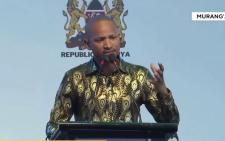Foreign digital service suppliers on KRA radar

Foreign firms that supply digital services have until Sunday, October 22 to register, collect, and remit value added tax (VAT) at 3 per cent for sales to Kenyan consumers, or risk consequences from the taxman.
This after Kenya Revenue Authority (KRA) directed, through a public notice on September 22, that all non-resident suppliers of such services comply with the new tax obligations on digital services regulations under the Finance Act, 2023, which was gazetted on June 27.
The deadline for acquiescence is Sunday, October 22, meaning such suppliers have just two days to comply with Friday being a public holiday. Failure to comply will attract various fines and penalties, including asset seizure.
The Act introduced a withholding tax of 5 per cent for payments relating to digital content monetization.
It amended the Income Tax Act by introducing Digital asset tax (DAT) at a rate of 3 per cent deducted by a person who owns a platform or facilitates the exchange or transfer of digital assets.
The tax is levied on the gross fair market value consideration received or receivable at the point of exchange or transfer of a digital asset and remitted within five days after making the deduction.
Meanwhile, non-residents who own platforms on which digital assets are exchanged or transferred will be allowed to register under the simplified tax regime.
“It is important to note that where the KRA has reached out to the non-residents by way of an individual letter or email, the date to comply contained within that note will take precedence,” reads a notice by KRA.
Non-compliance from foreign suppliers will see the exchequer commence enforcement measures, including seeking intervention from other relevant government authorities like the police and appointing tax agents for “purposes of collection and remittance of taxes to the KRA.”
KRA said last month that it had contacted a number of digital services businesses to explain the recent VAT changes and to raise awareness of the Digital Service Tax that is also payable on sales to Kenyan customers.
A digital asset is anything identifiable that is created and stored digitally and has or provides value.
The new levy means that every person dealing in assets such as cryptocurrencies and non-fungible tokens (NFTs), data, images, videos, and written content will forfeit part of their transactions to the taxman.
“A person who is required to deduct the digital asset tax shall, within twenty-four hours after making the deduction, remit the amount so deducted to the Commissioner together with a return of the amount of the payment, the amount of tax deducted, and such other information as the Commissioner may require,” reads the Act signed by President William Ruto on June 26.
t also means that non-resident suppliers who supply electronic or digital services to Kenyans, whether the transaction is done between two business entities (B2B) or business to consumer (B2C) in nature, will need to review the services that they supply to Kenyans to determine their tax obligation in Kenya.
President Ruto has sought to justify the increased taxes as the only way to reduce borrowing for a government struggling with a public debt of more than Sh10 trillion and is classified by the World Bank as being at high risk of debt distress.
While taxation is essential for government revenue, high taxes and levies on goods and services have been seen to inflate prices, contributing to the high cost of living in the country, with excessive tax rates impacting affordability, burdening individuals and the majority of Kenyan households.












